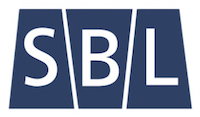Not sure I’ve ever been bored as an indexer and taxonomist, and this latest project is no exception. The whole big idea isn’t finished yet, so I’ll leave client identity out of this post, but I “rolled off the project” as the corporate folks put it, last week.
Unlike most of my book indexing projects, where I work alone with my indexing program and then deliver the goods at the end of a week or two, this was a very “social” project. Lots and lots, and lots of meetings! Good meetings for the most part, but, wow, it did take a lot of them to work through these two huge job title databases we were…matching up, I suppose you could say.
Jobs come in so many flavors and names, depending on where in the country or the world you are, even in the same language (in this case, English). Different places have different ways of discerning the level of skill or credentials for a job, for example, because different places have different educational systems, and these differences are reflected in job titles and descriptions as well. “Engineer” may involve certain educational requirements in one place but not another, for example. Or there may be different vocabulary for essentially the same job (lorry driver in Britain, truck driver in the U.S.). So it took a team collaborating over teleconference lines to compare research and try to decide on what to call a certain job.
The best part, though, besides the fun of semantic analysis (we indexers/taxonomists do have fun with that, actually), was learning about jobs that don’t involve words and sitting in front of computers. I actually plumbed the long experience of my husband in more hands-on jobs (like boilermaker, welder, carpenter, millwright? and other interesting variations) to see which jobs in these “blue-collar” areas were actually synonymous. Our team decided that we should get paid for watching “reality” TV shows because we actually also garnered job content clues from there. 😉
This huge project just reinforced my belief in the the interesting complexities of natural languages, particularly English. Language is just an amazing and amazingly huge thing.




Leave a Reply